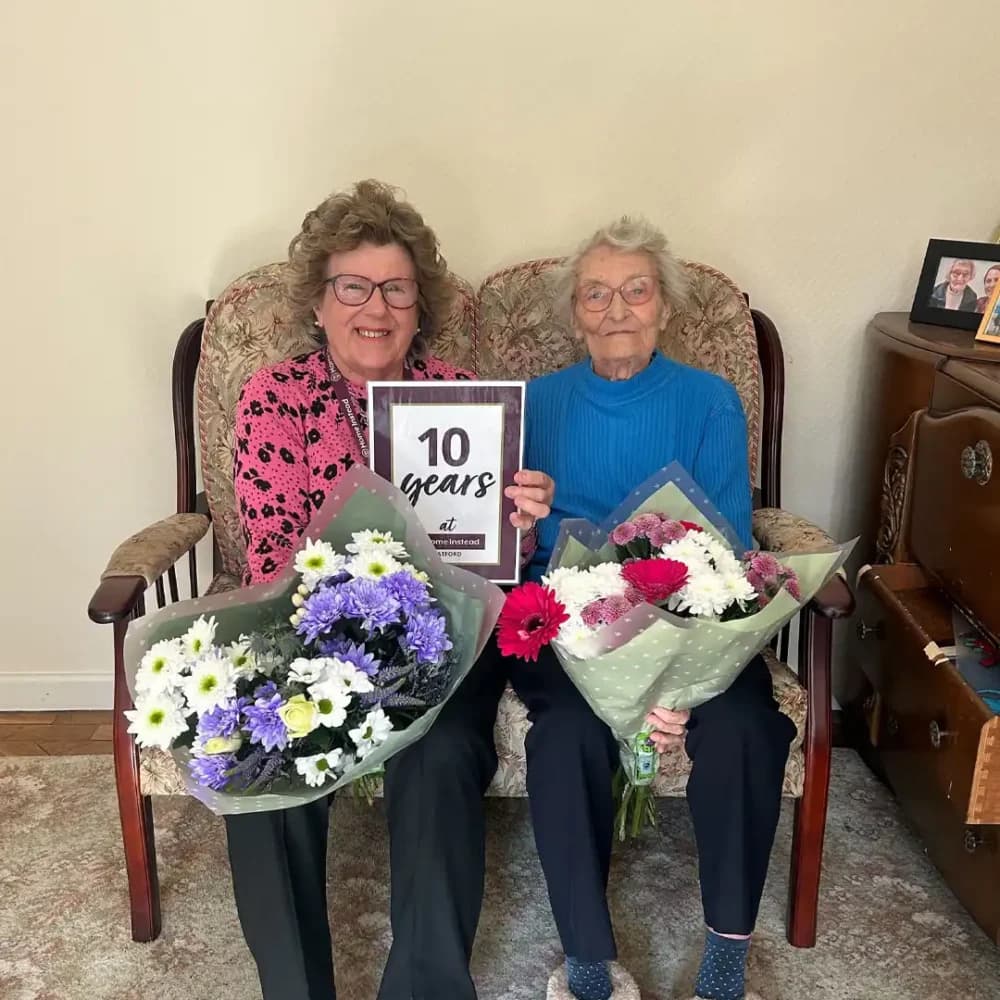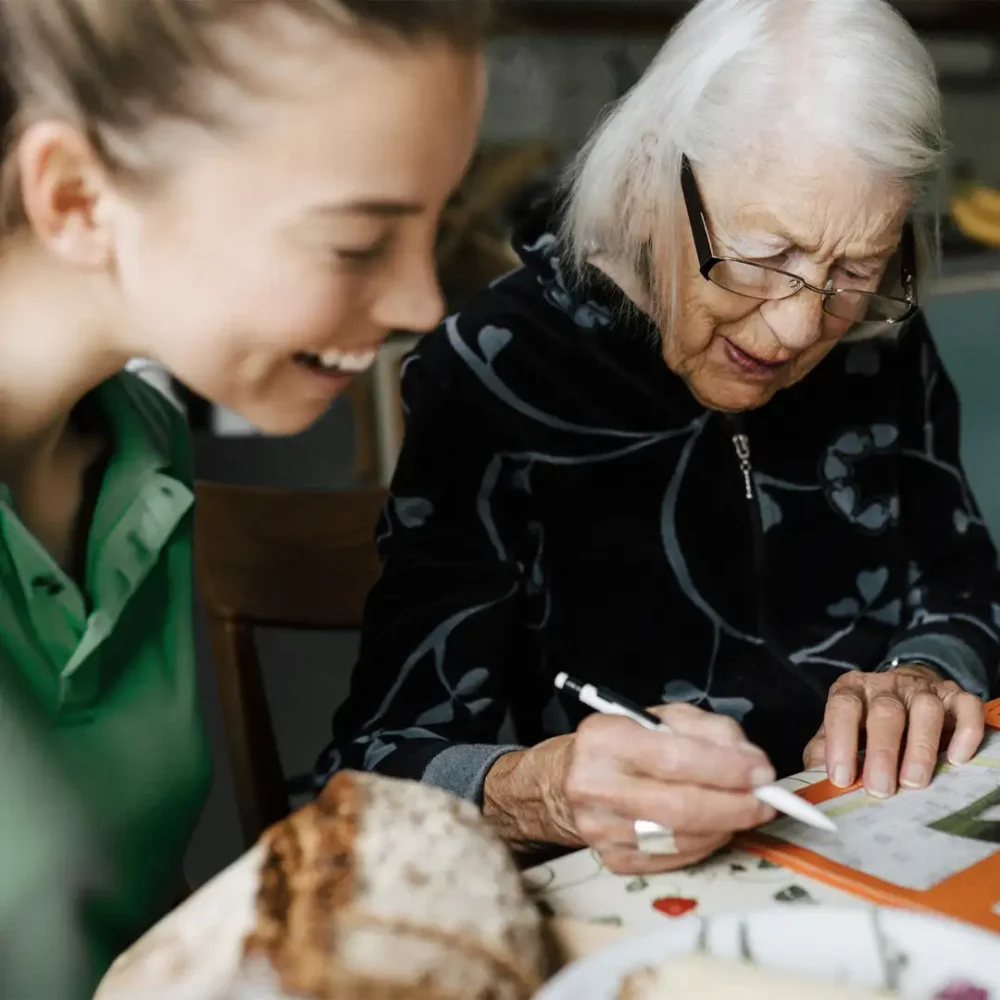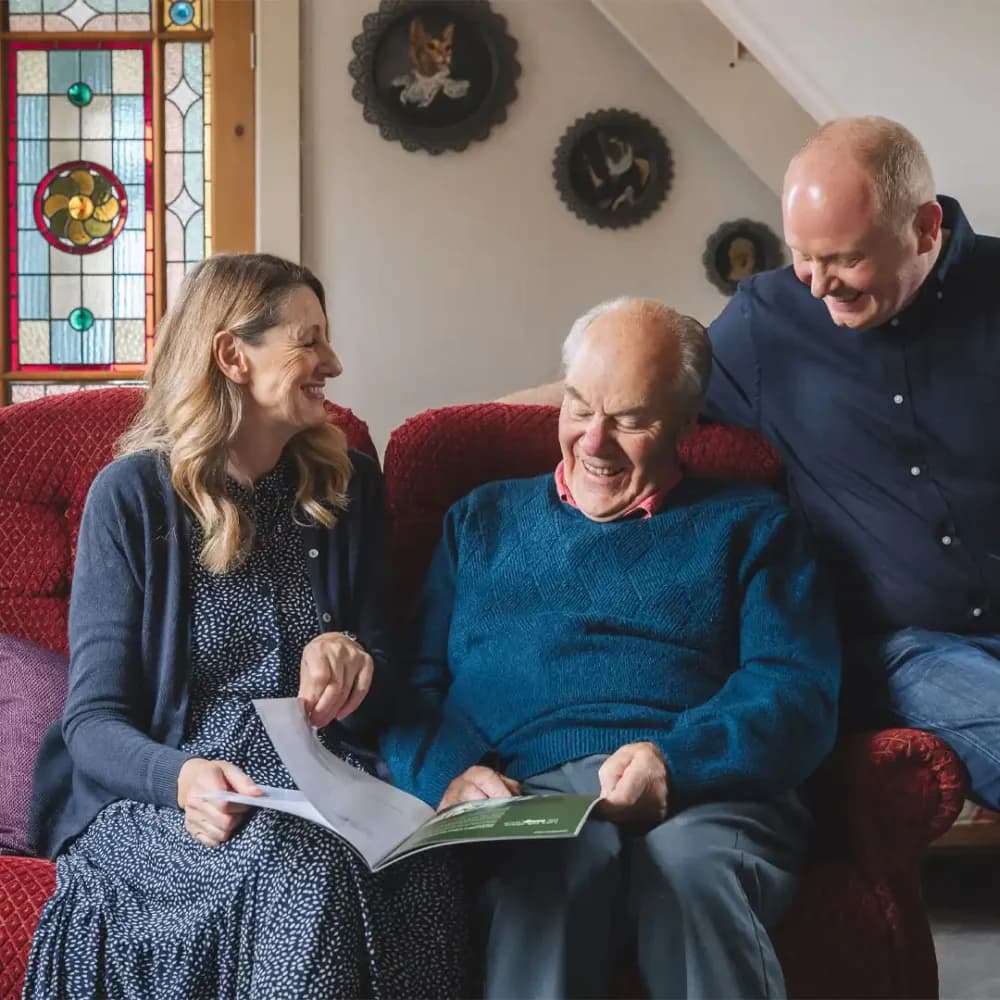Why Care Matching is Crucial for Person-Centred Home Care

Person-Centred Home Care: Meet Olive and Norma
Recently, we celebrated something truly special; Olive has been a care professional with Home Instead Watford for ten years, and for nine of those, she has been Norma’s primary carer. Their bond is a beautiful example of how person-centred care isn’t just about support; it’s about meaningful connections.
From walks around Oxhey to singing together and helping with Norma’s colouring (which, we must say, is incredibly neat!), Olive has been there every step of the way. This level of consistency and trust makes a real difference in someone’s life. In Norma’s case, it has meant everything. It’s given her confidence throughout her care journey, it’s given her social interaction, and Olive has given her support when things get tough.
As we marked this milestone with a get-together, we were reminded that great care (and excellent care outcomes) are built on relationships, respect, and shared moments. And that starts in the care matching process.

How Home Instead Care Matches Clients with Care Professionals
We spend a good deal of time considering the best care match for every new client we meet. For this relationship to work, it has to be built on trust. That starts with matching care professional skills, relatability, and compatibility. We must consider how the two will get along through shared interests and beliefs over the longer care term.
Then, we start to dig a little deeper. Does our client need motivation, or are they seeking assistance during their care journey? These seemingly small details (of which there are many) can become huge make-or-break points if you don’t get it right. You see, it’s about how a person takes to receiving care and how they perceive themselves in that process. A nod to their sense of self if you like. Our job is to provide the right support framework through the right care match that builds their trust in our services as a choice. Not as a reliance or dependence mechanism, you understand, but as a support.

When the care matching process works, it is a wonderful thing. Just as with Olive and Norma, their companionship helps Norma through her care journey, and she thrives because of it. And that’s because she feels supported while maintaining independence and a good deal of her sense of self.
Sometimes, that gets lost in care services: the fact that there is a person at the very centre of that care. They need nurturing to live their best lives and the right kind of support to bolster their mental, emotional, and physical well-being.
This is why, in our view, care matching is so imperative.
So, How Do You Ensure You Are Getting Person-Centred Home Care?
Firstly, ask questions during your enquiry phase—and lots of them. Ask about how a care company matches its care professionals to Mum and Dad. What do they consider an essential part of the process? Do these match your benchmarks? (Remember, it’s perfectly okay to set yourself benchmarks for what you expect from care—in fact, at Home Instead, we encourage it for peace of mind.)
Secondly, give Home Instead Watford a call. Chat with our care team and get a feel for how we do things. We offer a no-obligation home visit, where you can meet us and understand what we are about. You can also see us interact with Mum and Dad (which, in our mind, is one of the first signs you’ll spot for which service provider will suit your needs).

Finally, monitor the service delivery. How do you feel about the service you are receiving? Do you think the care professional is giving you the best outcome? How does Mum or Dad feel about the carer? Their input is critical here. Remember, you can switch carers if something isn’t working.
Hopefully, that’s given you a good jumping-off point to understanding what you want from your home care service when it comes to being matched to a care professional. Remember, it’s an essential piece of the puzzle and one worth spending some time considering.
If you need more advice or want us to show you how we do things, call us on 01923 250513.